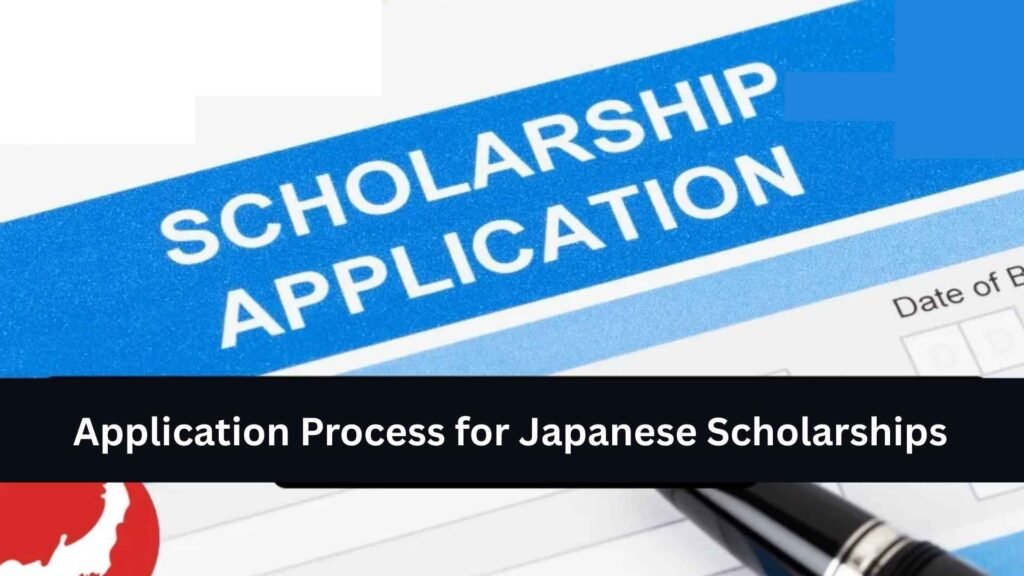Japan has emerged as one of the most popular destinations for higher education, attracting students from around the globe. Its world-class universities, advanced research facilities, and vibrant culture make it an ideal choice for academic excellence. However, the cost of studying abroad can be a concern for many students. This is where scholarship opportunities in Japan come into play. Scholarships not only ease the financial burden but also provide recognition and open doors to a bright academic future.
In this guide, we at Go to Japan Now will walk you through the top scholarships available in Japan, including government-sponsored programs, university-specific awards, and tips to increase your chances of success. Whether you are an undergraduate, graduate, or PhD aspirant, this comprehensive guide will help you navigate the scholarship landscape effectively.
Government Scholarships for Studying in Japan
Japan offers a wide range of government-funded scholarships to support international students. These programs aim to promote global academic collaboration, cultural exchange, and innovation. Government scholarships are highly competitive, but they are among the most comprehensive forms of financial support available, covering tuition, living expenses, and sometimes travel costs. For students looking to pursue higher education in Japan, understanding these scholarships is crucial. Scholarships for Study in Japan

MEXT Scholarship
The MEXT Scholarship, provided by the Ministry of Education, Culture, Sports, Science and Technology, is the most prestigious scholarship for international students in Japan. It is designed to support talented students at undergraduate, graduate, and research levels. Click now
Key Benefits of MEXT Scholarship:
- Full tuition coverage
- Monthly living allowance
- Round-trip airfare to and from Japan
- Research funding for graduate and PhD students
Eligibility & Selection:
Applicants are evaluated based on academic excellence, leadership potential, and their commitment to contributing to the development of their home country. The application process usually begins at Japanese embassies or consulates in your country, and deadlines can vary.
Why Choose MEXT:
MEXT not only provides financial security but also gives students the opportunity to study at top Japanese universities, network with peers from around the world, and gain exposure to advanced research opportunities.
JASSO Scholarships
The Japan Student Services Organization (JASSO) provides scholarships specifically designed for both short-term and long-term international students. Whether you are enrolled in a Japanese language program or pursuing an undergraduate course, JASSO scholarships offer essential financial support to help you focus on your studies and adapt smoothly to life in Japan.
Key Benefits of JASSO Scholarships:
- Monthly Stipend: Helps cover living expenses such as accommodation, food, and transportation.
- Partial Tuition Coverage: Reduces the financial burden of your educational fees.
- Cultural & Academic Support: Receive guidance to adapt to Japanese culture and academic life, ensuring a smoother transition.
Eligibility Criteria:
- Must be an international student currently enrolled or planning to enroll in a Japanese university or language program.
- Academic performance and commitment to studies are considered.
- Applicants should demonstrate the financial need to support their education and living in Japan.
- Short-term and long-term study programs are eligible, but specific requirements may vary depending on the scholarship type.
JASSO scholarships are perfect for students who may not qualify for fully-funded government scholarships but still need financial assistance to pursue their dream of studying in Japan.
Other Government-Affiliated Scholarships
In addition to MEXT and JASSO, a number of ministries, local governments, and affiliated organizations offer scholarships for international students pursuing specialized fields such as science, technology, arts, and social studies. These scholarships provide valuable opportunities for students looking to advance their education and gain unique experiences in Japan.
Notable Examples:
- Rotary Yoneyama Memorial Foundation: Offers scholarships to outstanding international students, covering tuition fees, living expenses, and in some cases, travel costs.
- Regional Government Scholarships: Certain prefectures and municipalities provide scholarships to encourage students to study locally and contribute to community development, particularly in research, culture, and social programs.
These scholarships often vary in terms of eligibility, coverage, and duration, and they are usually less publicized than MEXT or JASSO programs. Aspiring applicants need to be proactive in researching these opportunities and applying early to maximize their chances.
University-Specific Scholarships in Japan
Beyond government-funded programs, many Japanese universities offer exclusive scholarships to attract talented international students. These scholarships are designed to reward academic excellence, leadership skills, and research potential, while also fostering meaningful cultural exchange.
University-specific scholarships can provide partial or full financial support, covering tuition fees, living expenses, or even research costs. They are an excellent opportunity for students who want to maximize their educational experience in Japan while reducing financial pressures.

By applying for these scholarships, students not only gain financial assistance but also receive recognition for their achievements and potential, enhancing their academic and professional prospects in Japan and beyond.
University of Tokyo Scholarships
The University of Tokyo, one of Japan’s most prestigious and globally recognized institutions, offers a wide range of scholarships for international students across both undergraduate and graduate programs. These scholarships are designed to support academic excellence, research potential, and leadership qualities, helping students make the most of their studies in Japan.
Key Benefits:
- Full or Partial Tuition Waivers: Significantly reduce or eliminate the cost of your education.
- Monthly Stipends: Cover living expenses, allowing you to focus fully on your studies.
- Research Grants: Available for graduate students to support innovative projects and academic research.
- Comprehensive Financial Support: Some scholarships also cover additional expenses, ensuring a smoother transition to life in Japan.
Application Process:
Students can apply directly through the university or via government-linked programs such as MEXT. The selection process evaluates:
- Academic achievements and performance
- Research potential and innovation
- Leadership qualities and extracurricular contributions
Why Choose the University of Tokyo:
Receiving a scholarship here not only reduces financial pressure but also grants access to world-class research facilities, globally recognized faculty, and a strong alumni network. These advantages can significantly boost your career prospects both in Japan and internationally.
Kyoto University Scholarships
Renowned for its research excellence and innovation, Kyoto University offers merit-based scholarships for international students at both undergraduate and graduate levels. These scholarships are designed to recognize outstanding academic performance and foster global collaboration.
Key Benefits:
- Tuition Coverage: Full or partial tuition support for eligible students.
- Living Allowances: Monthly stipends to help cover accommodation, food, and daily expenses.
- Research Grants: Available for specific fields of study, enabling students to pursue cutting-edge research projects.
Eligibility:
Applicants are typically evaluated based on:
- Academic performance and achievements
- Research potential and innovation
- Contributions to their home country or community
Why Choose Kyoto University:
Receiving a scholarship at Kyoto University not only reduces financial pressure but also provides access to advanced research opportunities, state-of-the-art facilities, and collaboration with leading experts in your field. These advantages make it an ideal choice for students aiming for careers in academia, research, or research-intensive industries.
Waseda University Scholarships
Waseda University is well-known for its English-taught programs and offers a variety of scholarships to attract international talent. These scholarships often target students who demonstrate academic excellence, leadership, and community engagement.
Key Benefits:
Partial/full tuition, research collaborations, recognition, leadership support for students.
- Partial or full tuition scholarships
- Opportunities for international research collaborations
- Recognition and support for students showing leadership potential
Application Process:
Students can apply directly to Waseda University. Some scholarships may also require submission of a personal statement, letters of recommendation, and proof of achievements in academics or extracurricular activities.
Why Choose Waseda University:
Scholarships at Waseda not only reduce financial challenges but also enhance your global profile. They provide exposure to an international student community, opportunities for internships, and connections with corporate and academic networks.
Scholarships for International Students in Japan
Japan provides a diverse range of scholarships tailored specifically for international students, making it easier for global learners to pursue their academic dreams. Whether you are aiming for a short-term language program, undergraduate degree, or graduate research, these scholarships can be fully-funded or partially-funded, depending on the provider, university, or program.

By offering financial support, scholarships help reduce the burden of tuition, living expenses, and other costs associated with studying abroad. Beyond financial aid, they also provide unique academic, research, and cultural experiences, allowing students to immerse themselves in Japanese life, expand their global network, and enhance their professional and personal growth.
With so many opportunities available, securing a scholarship in Japan can be a transformative step toward achieving your educational and career goals.
Rotary Yoneyama Scholarship
The Rotary Yoneyama Memorial Foundation offers a prestigious private scholarship for international students pursuing undergraduate or graduate studies in Japan. Known for its competitiveness, this scholarship is awarded to students who demonstrate academic excellence, strong leadership skills, and a commitment to fostering global understanding.
Key Benefits:
- Full Tuition Coverage: Significantly reduces the cost of education.
- Monthly Living Allowance: Helps cover accommodation, food, and daily expenses.
- Travel Expenses: Support for arrival and departure, ensuring a smooth transition to and from Japan.
Why Choose the Rotary Yoneyama Scholarship:
Beyond financial support, this scholarship provides access to a global network of Rotary alumni, offering opportunities for mentorship, professional growth, and international collaboration. It’s an excellent choice for students who aspire to excel academically while building a global impact.
Private Organization Scholarships
In addition to government and university-specific scholarships, many private foundations and organizations in Japan provide funding to attract international talent. These scholarships often focus on:
- Corporate-Sponsored Scholarships: Offered by companies seeking skilled graduates in fields like technology, engineering, and business.
- Research Grants: Available for postgraduate students involved in advanced research projects.
- Cultural Exchange Programs: Designed to encourage international students to contribute to Japanese culture and society.
Why Choose Private Organization Scholarships:
These scholarships provide more than just financial support—they often include mentorship opportunities, internships, and exposure to professional networks, giving students a competitive edge in their careers.
Short-Term Study Scholarships
Short-term scholarships are perfect for students planning to study in Japan for one semester, one year, or through exchange programs. These programs offer a condensed yet immersive experience, allowing students to explore Japanese culture, language, and academic life without committing to a long-term course.
Key Benefits:
- Tuition Coverage: Financial support for the duration of the program.
- Travel Allowances: Assistance for arrival and departure expenses.
- Accommodation Support or Stipends: Helps cover housing and daily living costs.
Why Choose Short-Term Study Scholarships:
These scholarships provide a unique opportunity for students to gain international exposure, participate in research programs, and experience cultural immersion within a short timeframe. They are ideal for those seeking a rich Japanese experience without long-term academic commitments, helping students grow personally and professionally while exploring Japan.
Application Process for Japanese Scholarships
Applying for scholarships in Japan can seem daunting at first, but with proper planning and preparation, the process becomes straightforward. Understanding each step ensures that your application is complete, timely, and competitive. Below is a detailed, step-by-step guide to help you navigate the scholarship application process effectively.

1. Research Available Scholarships
Start by identifying scholarships that match your academic level, field of study, and nationality. Scholarships in Japan may be:
- Government-funded: e.g., MEXT, JASSO
- University-specific: e.g., University of Tokyo, Waseda University
- Private or corporate scholarships: e.g., Rotary Yoneyama, foundation grants
Take note of eligibility criteria, deadlines, coverage, and application requirements. Keeping a list of relevant scholarships can save time and prevent missed opportunities.
2. Check Eligibility Criteria
Once you have shortlisted scholarships, verify that you meet all eligibility requirements, which usually include:
- Minimum GPA or academic performance
- Language proficiency in Japanese (JLPT) or English (TOEFL/IELTS)
- Age limits or nationality-specific conditions
- Field of study requirements for specialized programs
Meeting the eligibility criteria is essential; submitting an application without checking these can lead to disqualification.
3. Prepare Required Documents
Gather and prepare all necessary documents in advance. Most scholarship applications require:
- Academic transcripts from previous education
- Letters of recommendation from teachers or mentors
- Personal statement or essay explaining your goals and why you chose Japan
- Valid passport and identification documents
- Language proficiency certificates, if required
Ensure that all documents are accurate, up-to-date, and translated into Japanese or English as needed. Some scholarships may also require research proposals for graduate-level applications.
4. Submit the Application
Applications can typically be submitted in two ways:
- Directly to the university: For university-specific scholarships.
- Through government channels: For programs like MEXT, applications may go through the Japanese embassy or consulate in your home country.
Always double-check the submission format—online, email, or hard copy—and ensure all forms are correctly filled.
5. Attend Interviews or Exams
Some scholarships may require additional evaluation through:
- Interviews: To assess motivation, leadership skills, and communication abilities
- Written exams: Particularly for merit-based or research scholarships
- Language proficiency tests: Depending on program requirements
Preparing thoroughly for these assessments increases your chances of selection.
6. Wait for the Results
After submission, notification timelines vary by scholarship. Some may take a few months, while others may take longer. Keep track of deadlines and follow up with the scholarship office if necessary.
Pro Tip: Start preparing at least 6–12 months before the application deadline to ensure all documents and requirements are in order.
Tips for Winning Scholarships in Japan
Securing a scholarship in Japan can be highly competitive, but with careful planning and strategic preparation, your chances of success can improve significantly. Here are some actionable tips to help you stand out among other applicants:

1. Maintain Excellent Academic Records
Most scholarships in Japan place a strong emphasis on academic excellence. Consistently achieving high grades and demonstrating a strong grasp of your field of study will make your application more compelling.
Action Steps:
Improve GPA, join research, competitions, and showcase awards in application.
- Focus on improving GPA and academic performance
- Participate in relevant research projects or academic competitions
- Highlight any awards or recognitions in your application
2. Highlight Leadership and Community Involvement
Scholarship committees value students who contribute beyond academics. Leadership skills, volunteering, and community service showcase your ability to make a positive impact.
Action Steps:
Lead clubs, volunteer, and showcase teamwork, initiative, problem-solving in statement.
- Take up leadership roles in clubs, societies, or student organizations
- Volunteer in social, environmental, or cultural initiatives
- Emphasize teamwork, problem-solving, and initiative in your personal statement
3. Craft a Strong Personal Statement
A well-written personal statement can make a significant difference in your application. It should clearly convey your academic goals, motivation for studying in Japan, and how the scholarship will help you achieve your ambitions.
Action Steps:
Write clear essay, highlight achievements, goals, passion, and customize per scholarship.
- Write a clear, concise, and authentic essay
- Highlight your achievements, career goals, and passion for your field
- Customize the statement for each scholarship application
4. Secure Strong Recommendation Letters
Letters of recommendation are a critical part of scholarship applications. Strong endorsements from professors or mentors can validate your abilities and potential.
Action Steps:
Choose knowledgeable recommenders, give details, and request letters well in advance.
- Choose recommenders who know your academic and personal strengths well
- Provide them with relevant details about the scholarship and your goals
- Ask in advance and give sufficient time to write a thoughtful letter
5. Demonstrate Japanese or English Proficiency
Language proficiency is often a requirement for scholarships in Japan. Depending on your program, you may need Japanese (JLPT) or English (TOEFL/IELTS) certification.
Action Steps:
Take tests early, practice language skills, and include scores in application.
- Take language proficiency tests early to meet deadlines
- Practice speaking, writing, and comprehension skills
- Include test scores or certificates in your application
6. Apply Early
Submitting your application well before the deadline shows organization and dedication. Early applications can also give you more time to correct errors or provide additional documents if requested.
Action Steps:
Track deadlines, prepare documents early, and avoid last-minute submission errors.
- Track deadlines carefully
- Prepare documents 6–12 months in advance
- Avoid last-minute submissions to prevent mistakes
At Go to Japan Now, we guide students through every step of the scholarship application process, making it easier to secure funding and begin your academic journey in Japan. Tokyo Experiences 2025
FAQs About Scholarships in Japan
Q1: Can international students get fully-funded scholarships in Japan?
Yes, many government, university, and private scholarships are fully-funded, covering tuition, living expenses, and sometimes airfare.
Q2: Do I need to know Japanese to apply for scholarships?
Some scholarships require Japanese proficiency, while many English-taught programs allow applications without Japanese knowledge. Check individual scholarship requirements.
Q3: How early should I apply for a Japanese scholarship?
It is recommended to start preparing at least 6–12 months before the scholarship deadline to ensure all documents are ready.
Q4: Are there scholarships for short-term study programs?
Yes, several scholarships are available for short-term studies or exchange programs, often covering tuition, travel, and living costs.
Q5: Can I apply for multiple scholarships simultaneously?
Yes, students can apply for multiple scholarships, but make sure to meet all eligibility criteria and deadlines for each program.
Q6: What types of scholarships are available in Japan?
Japan offers government-funded, university-specific, private organization, corporate, and short-term study scholarships.
Q7: Are scholarships available for undergraduate students?
Yes, many scholarships, including MEXT, JASSO, and university-specific programs, cater to undergraduate students.
Q8: Are graduate students eligible for Japanese scholarships?
Absolutely. Graduate students can apply for scholarships like MEXT, Rotary Yoneyama, and university research grants.
Q9: Do I need to submit a research proposal for scholarships?
For graduate-level or research-focused scholarships, a well-prepared research proposal is usually required.
Q10: How important is the personal statement?
Personal statements are critical. They showcase your goals, motivation, and fit for the scholarship.
Q11: Can scholarships cover living expenses in Japan?
Yes, many scholarships provide monthly stipends to cover accommodation, food, and daily expenses.
Q12: Are corporate or private scholarships available for international students?
Yes, several companies and foundations provide scholarships, research grants, or cultural exchange programs.
Q13: How competitive are Japanese scholarships?
Scholarships, especially fully-funded ones, are highly competitive. Strong academic records and leadership skills improve your chances.
Q14: Do scholarships guarantee admission to a university?
Not always. Some scholarships require a separate university admission process, while others are linked to admission.
Q15: Where can I get guidance for applying to scholarships in Japan?
You can get expert guidance from Go to Japan Now or TLS – The Japanese Language School, which assist with applications, documentation, and exam preparation.
Conclusion
Studying in Japan can be a transformative experience, both academically and culturally. With a range of scholarship opportunities in Japan, students can pursue higher education without financial worries. From government-funded programs like MEXT to university-specific awards and private organization scholarships, there are numerous ways to fund your studies. By understanding the application process and following our tips for winning scholarships, you can make your dream of studying in Japan a reality.
For personalized guidance on scholarships and admissions, contact TLS – The Japanese Language School. Our experts at Go to Japan Now will assist you with applications, documentation, and exam preparation.Call Now: +91 8700956038 Japan Tourist Visa for Indians

